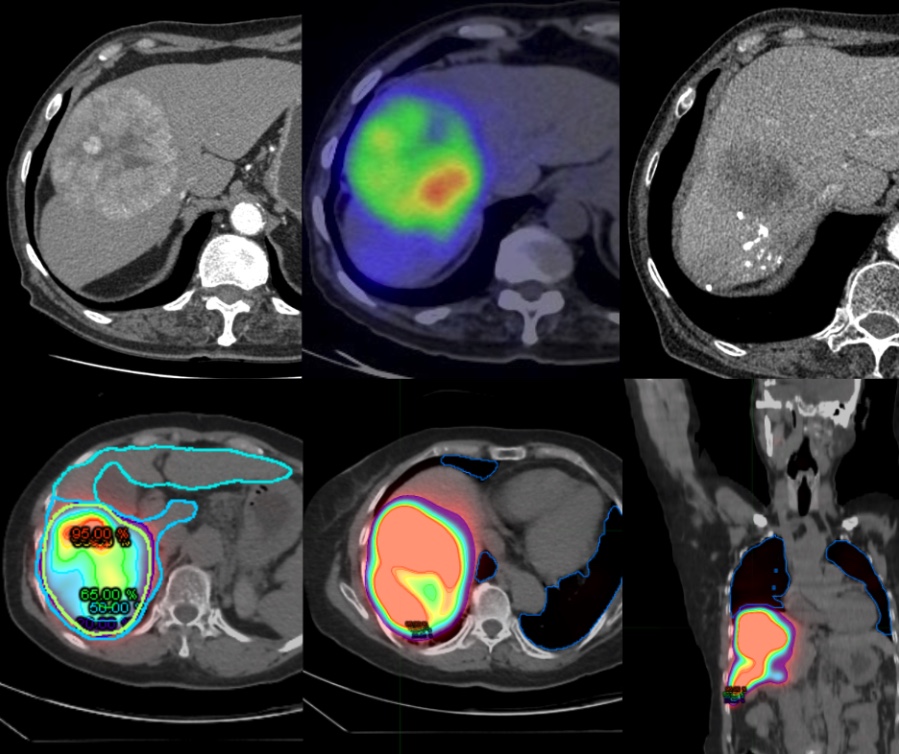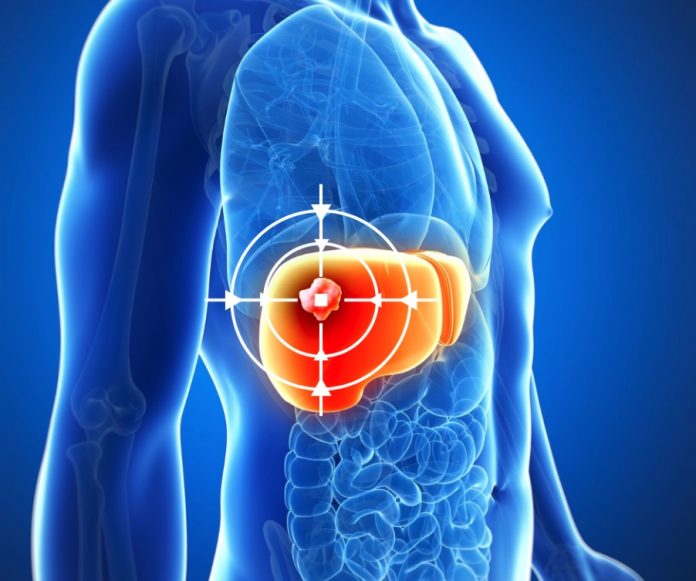#thethailandersnews
มะเร็งตับยังคงเป็นภัยเงียบที่คร่าชีวิตคนไทยจำนวนมาก โดยเฉพาะในเพศชายที่พบมากเป็นอันดับหนึ่ง ปัจจัยเสี่ยงหลักมาจากโรคตับแข็งที่มีสาเหตุหลากหลาย เช่น ไวรัสตับอักเสบเรื้อรัง การดื่มแอลกอฮอล์ และไขมันพอกตับ สำหรับผู้ป่วยบางรายที่ร่างกายไม่แข็งแรงพอจะเข้ารับการผ่าตัดซึ่งเป็นวิธีรักษาหลัก โอกาสในการหายขาดแทบเป็นศูนย์
กรมการแพทย์จึงแนะนำทางเลือกใหม่ในการรักษา คือ TARE หรือ Transarterial Radioembolization ซึ่งเป็นการฉีดสารกัมมันตรังสี Yttrium-90 ผ่านทางหลอดเลือดแดงเข้าสู่ก้อนมะเร็งโดยตรง วิธีนี้จะทำลายเซลล์มะเร็งจากภายในอย่างแม่นยำ ลดผลกระทบต่อเนื้อตับที่ดี และช่วยให้ตับส่วนดีสามารถฟื้นตัวได้ โดยพบว่าสามารถลดขนาดก้อนมะเร็งลงได้ถึง 50% และเพิ่มโอกาสให้ผู้ป่วยที่เดิมไม่สามารถผ่าตัดได้ กลับมาผ่าตัดได้ถึงหนึ่งในสาม ซึ่งถือเป็นความหวังใหม่ของผู้ป่วยมะเร็งตับระยะกลางถึงปลายที่เคยไม่มีทางเลือก การรักษาด้วย TARE มีสองขั้นตอน คือการวางแผนด้วยการฉีดสารจำลองเพื่อดูพฤติกรรมการกระจายของรังสี และการฉีดสารจริง ซึ่งจะห่างกันประมาณหนึ่งสัปดาห์ โดยหลังรักษาควรหลีกเลี่ยงการใกล้ชิดเด็กเล็กหรือหญิงตั้งครรภ์ประมาณสามวัน อาการข้างเคียงที่พบได้ เช่น ไข้ ปวดท้อง หรือคลื่นไส้ มักเกิดในช่วงสัปดาห์แรกและสามารถควบคุมได้ ส่วนภาวะแทรกซ้อนรุนแรงพบได้น้อยมาก

แม้ว่าที่ผ่านมาแนวทางรักษาอื่น เช่น TACE หรือยามุ่งเป้า จะถูกใช้กับผู้ป่วยที่ผ่าตัดไม่ได้ แต่ผลลัพธ์ยังไม่แม่นยำเท่า TARE ซึ่งใช้เทคโนโลยีภาพถ่ายรังสีและเวชศาสตร์นิวเคลียร์คำนวณรังสีเฉพาะราย ทำให้การรักษาตรงจุดและปลอดภัยยิ่งขึ้น



ถึงต้นทุนของการรักษาจะยังสูงและขั้นตอนซับซ้อน แต่ทีมแพทย์ไทยกำลังเร่งพัฒนาศักยภาพอย่างต่อเนื่องเพื่อให้ TARE กลายเป็นแนวทางรักษาหลักในอนาคต ที่จะช่วยเพิ่มคุณภาพชีวิตและยืดเวลาของผู้ป่วยมะเร็งตับในประเทศไทยอย่างเป็นรูปธรรม
Liver cancer remains a silent killer that claims the lives of many Thais, particularly men, among whom it ranks as the most common cancer. Major risk factors include cirrhosis caused by chronic hepatitis, long-term alcohol consumption, and fatty liver disease. For some patients whose physical condition is too weak for surgery—the primary and most effective treatment option—the chance of recovery is almost nonexistent.
To address this, the Department of Medical Services has introduced a new treatment option known as TARE, or Transarterial Radioembolization. This technique involves injecting Yttrium-90, a radioactive substance, directly into the artery that supplies the tumor. The radiation precisely destroys cancer cells from within while sparing healthy liver tissue and allowing it to regenerate. Studies have shown that TARE can reduce tumor size by up to 50% and enable one-third of previously inoperable patients to become eligible for surgery. This offers new hope for those with intermediate to advanced-stage liver cancer who previously had limited options.
TARE involves two main steps: the first is a planning phase using a simulated tracer to observe how the radiation would disperse; the second, about a week later, is the actual injection of the radioactive microspheres. After treatment, patients are advised to avoid close contact with young children and pregnant women for about three days. Common side effects include fever, abdominal pain, or nausea during the first week, all of which are generally manageable. Serious complications are rare.
While other treatments such as TACE (Transarterial Chemoembolization) or targeted therapy have been used for inoperable cases, TARE offers greater precision. By combining advanced imaging and nuclear medicine techniques, physicians can tailor radiation doses to each individual patient, increasing effectiveness while minimizing risk.
Despite its higher cost and procedural complexity, Thai medical teams are working to build the necessary expertise and infrastructure to make TARE a standard treatment in the near future—one that can significantly improve the quality of life and survival outcomes for liver cancer patients across the country.
#LiverCancer #TARE #CancerTreatment #MedicalInnovation
ที่มา : www.sicir.org
















